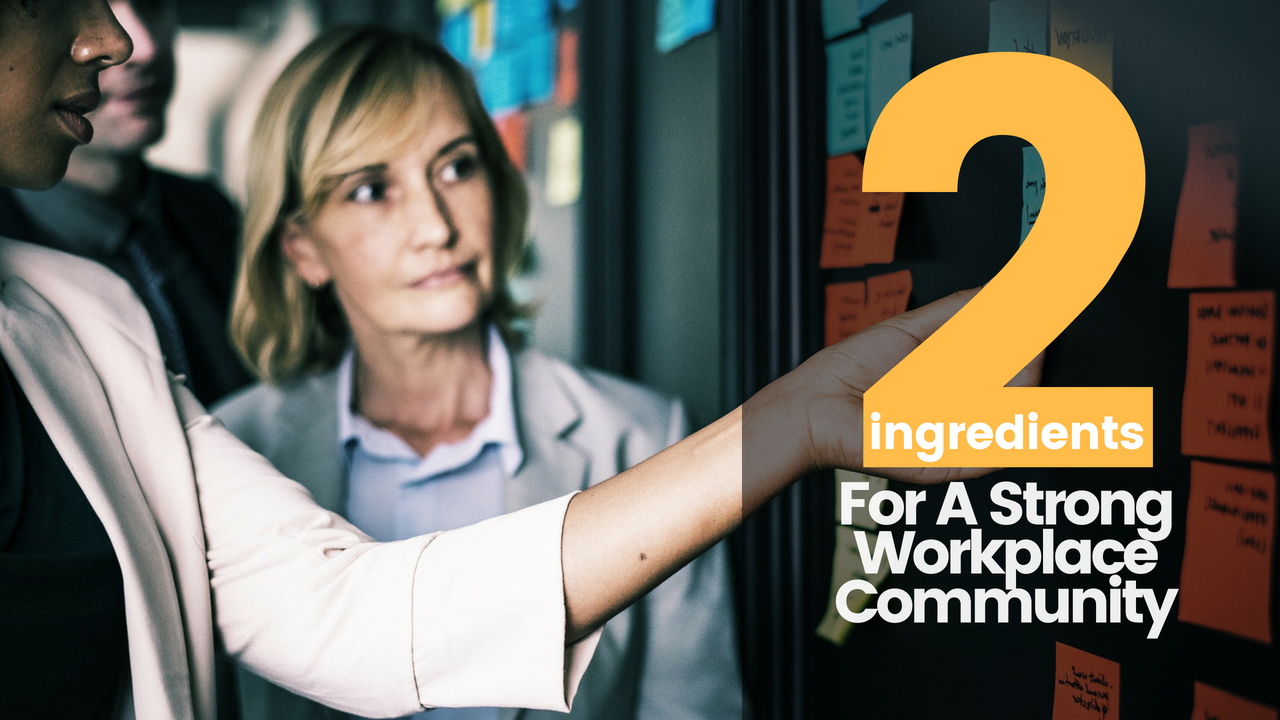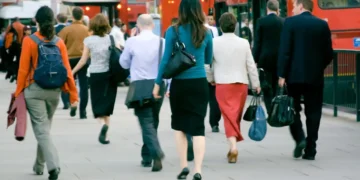- Leah Weiss teaches compassionate leadership courses at Stanford University and she recently wrote the book ‘How We Work: Live Your Purpose, Reclaim Your Sanity and Embrace the Daily Grind’
- Weiss’ book is based on her Stanford courses which combine neuroscience research with ancient Buddhist techniques
- At GCUC in NYC this year, we learned that wellness is the new black and that the workplace community and environment can have a big impact on our physical and mental health
The boundaries that once divided our professional lives from our personal lives continue to vanish as new technologies empower individuals to work remotely. While there are various benefits to this, this blurring of the boundaries also means that it’s tougher, now more than ever, to separate who we are from the work we do.
Think about it; what’s the first thing that you do when someone asks the question: what do you do? As human beings we do a lot of things; we eat, we sleep, we think, we walk, we talk, we listen, etc. But these are never the answers we give to that question; we typically respond by stating the work we do.
Leah Weiss, PhD, Professor at Stanford University, and author of How We Work: Live Your Purpose, Reclaim Your Sanity and Embrace the Daily Grind, believes that the way we feel about our work and work environment matters a whole lot, especially considering that we spend most of our time and energy at work. Because of this, it’s crucial that we create environments that make us feel better, that help us in being more efficient, and that allow us to focus on the important things.
Weiss’ research and work centers around the concepts of mindfulness and compassion. Here’s how she defines both concepts:
Compassion: recognizing that there is suffering in everybody, ourselves included.
Mindfulness: the intentional use of our attention.
Because “people don’t have time today and we can’t tell them to go meditate for two hours a day,” it’s become crucial that we create and foster environments that are conducive to mindfulness and powered by compassion.
In the workplace specifically, compassion can help us establish stronger bonds with our colleagues and coworkers, therefore leading to a stronger, more supportive culture. Mindfulness for its part can help us get better at prioritizing and dealing with distractions, which can help reduce stress and make us more efficient.
As workspace operators, this means that you need to think about how your members react, physiologically speaking, to your space.
“As human beings, if we feel threatened or afraid, our mental and physical resources get hijacked. In order for our mental and physical resources to be available to do work, we need to feel comfortable in our work environment.”
Comfort levels are highly subjective and depend on each individual, but things such as temperature, noise levels, and even visible exits can have a significant impact on how our body and mind react.
Unfortunately, it’s impossible to please everyone in these aspects, which is why it’s crucial that workspace operators encourage a culture of mindfulness and compassion. “Mindfulness has the power to give us attention regulation and to get our attention to where we want it to be, even if there are various distractions in the background. Practicing mindfulness helps individuals perform and operate better in any given type of environment.”
Compassion for its part can help us understand that we all have individual needs, which can help in improving workplace relations.
“Being compassionate helps us change our perspective and the way we think and feel about people. In coworking spaces, there are always people that don’t see the value in reaching out and bonding with others because we think we don’t have anything in common with them. This is a mistake. There is a fundamental humanness and point of connection between all users of a coworking space; they are working on something they care about, they are looking to support their families, they want to thrive in life, and so on. If we use this as a starting point, then it becomes easier to relate to one another and this leads to stronger connections and relationships.”
It all boils down to the fact that our environment matters. “Today, regardless of what business you are in, you cannot afford to cut out the questions of: what is my culture like?”
Weiss adds, “it’s not just about the hip finish or the great coffee. It’s about how people are influenced by the environment and how that environment influences people’s behavior.”



 Dr. Gleb Tsipursky – The Office Whisperer
Dr. Gleb Tsipursky – The Office Whisperer Nirit Cohen – WorkFutures
Nirit Cohen – WorkFutures Angela Howard – Culture Expert
Angela Howard – Culture Expert Drew Jones – Design & Innovation
Drew Jones – Design & Innovation Jonathan Price – CRE & Flex Expert
Jonathan Price – CRE & Flex Expert












